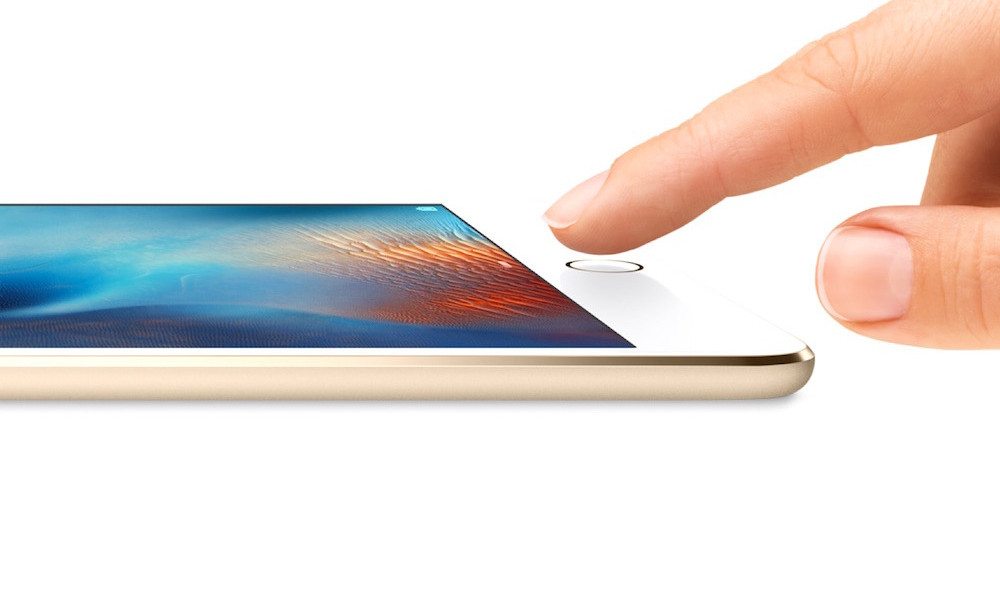New Apple Patent Would Allow the Touch ID Sensor and Camera to Catch iPhone Thieves Red-Handed
 Credit: Apple
Credit: Apple
Toggle Dark Mode
I was 13-years-old when my first cellphone was stolen from my backpack at school. And while the experience was understandably traumatizing — perhaps even more so in my fragile little teenage mind — I couldn’t help but wonder, even at the time, if there was anything that could be done to locate the phone — or even better yet, the hooligan who swiped it from right under my nose
Of course, that phone was merely a Nokia 6822 — not really anything too advanced, at least by today’s standards; and thus, there were no security protocols in place to prevent the thug from just delving right in and making their own of one of my best birthday gifts in modern memory. What a shame, right? Wouldn’t it be nice if there were a way that thieves could be stopped, or at least identified, and perhaps even caught, after the fact? Well, of course it would.
And, believe it or not, Apple was actually granted a patent just this morning that could potentially make the futuristic-sounding fantasy a reality for future iOS device owners, sooner rather than later.
Published by the U.S. Patent and Trademark Office, Apple’s latest invention is defined as a “Biometric capture for unauthorized user identification.” It goes on to detail a pretty remarkable process by which an iPhone or iPad’s Touch ID sensor, front-facing camera, and potentially a combination of other sensors, could be used to capture and store vital data that may help authorities locate the potential thieves.
The function of the protocol would essentially work in the same way that Touch ID already does. For instance, Touch ID-compatible iOS devices are currently offered five attempts to unlock with Touch ID by default — prior to the device subsequently defaulting to the user’s custom passcode for their 6th attempt to access the device. Ten incorrect attempts to unlock the device, however, automatically triggers a 48-hour “cool down” period, or, in some instances, a complete data wipe, depending on your pre-configured security settings.
Apple’s patent essentially outlines a way to implement certain security settings that, at the owner’s discretion, could circumvent the existing settings — allowing the storage of any fingerprints, photos, etc., of whoever is trying to access the device. For instance, in one example of how the patent could work in practice, the iPhone or iPad could potentially be pre-configured to evaluate various security information — such as fingerprints and photos — of the user who made a failed login attempt — even if “the user” just so happens to be you.
Additionally, other biometric data — such as speed, location, air pressure and more — could all be collected, at which point it could either be remotely stored on the device, itself, or sent to a remote server for further evaluation. “So how would all that information be handled?” you might ask, and Apple has a fairly thorough explanation.. According to Cupertino, one possibility is that any biometric data saved on the device would then be cross-referenced with federal or local databases that contain similar information of all known users. And yes, those databases do exist at both the federal and local levels. Big brother is always watching, after all, right?
It sounds like a pretty helpful, albeit legally questionable concept, doesn’t it? We’ll have to see exactly how this all comes out to play — if it even does. Remember, not every Apple patent ultimately makes its way into a functional product. But for some (perhaps understandable) reason, the enraged and emotionally violated 13-year-old boy inside of me, who only wanted his darn Nokia back, hopes that it does!
What do you think about this patent? Would you implement these security features if given the option? Let us know in the comments!
[The information provided in this article has NOT been confirmed by Apple and may be speculation. Provided details may not be factual. Take all rumors, tech or otherwise, with a grain of salt.]






